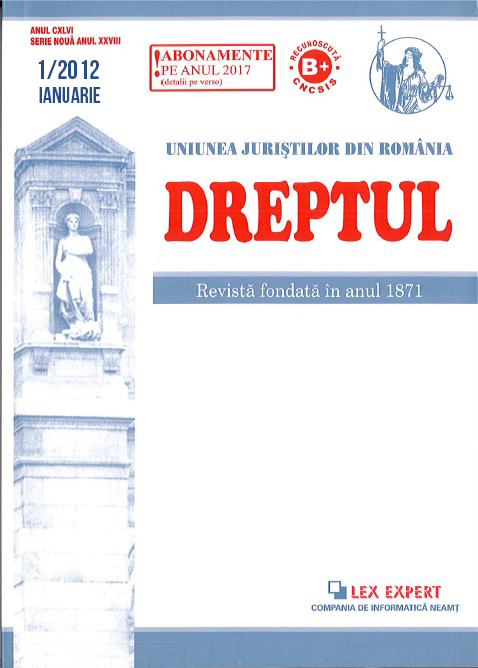In the new Civil Procedure Code, a great number of court decisions remain final in the appeal in tribunals or courts of appeal, and there is no procedural way to fight against illegal or unfounded decisions. Given the judicial realities of our country, it is speculative to believe that the enforcement of the NCPC will automatically stop tribunals and courts of appeal from pronouncing illegal or unfounded decisions. Therefore, it is only natural that an adequate regulation is adopted, by the reintroduction of the action for cancellation as a last remedy for the correction of illegal or unfounded decisions. Although the action for cancellation proved its utility, it was eliminated from the Civil Procedure Code, by the Government Emergency Ordinance no. 58/2003, amending and supplementing the Civil Procedure Code. The parties in the trials for which the decisions remain final in the appeals filed with various tribunals and courts of appeal do not have access to the High Court of Cassation and Justice, and in these circumstances illegal or unfounded decisions are not submitted to the judicial control of the latter. The requirement to correct illegal or unfounded judgements passed by the courts of law is provided by art. 6 § 1 in the European Convention of Human Rights, art. 1 par. 3 and art. 124 in the Constitution, moral rules and the precepts of the Holy Bible, the sacred book of Christianity, according to which all deeds and actions of people must be based on truth and justice.


